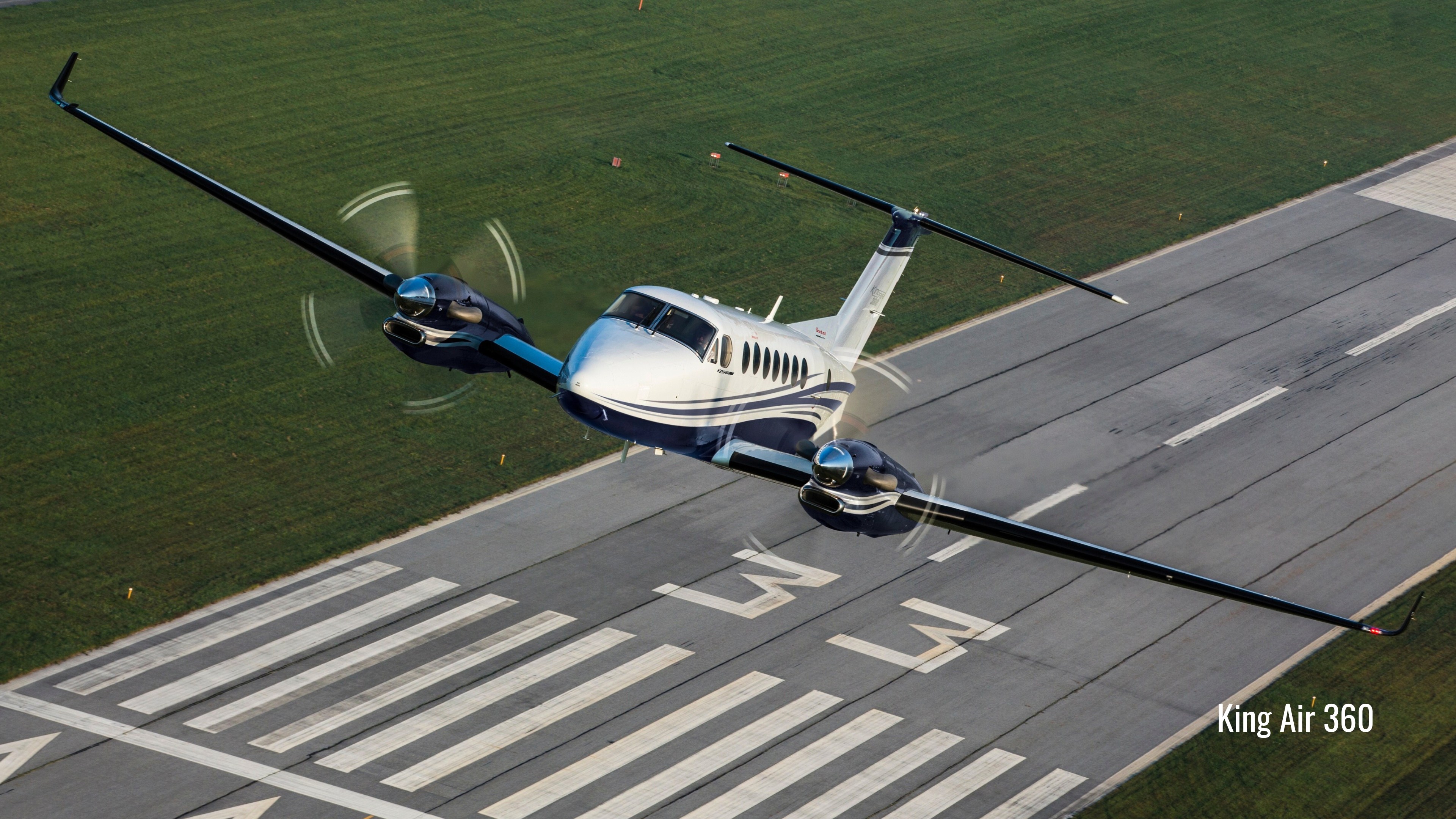Transition To Become A Contract Pilot And Maintain Your Full-Time Job
Jan 12, 2025
For Professional Pilots looking to break into the lucrative world of contract piloting, making this career shift as the ultimate side hustle can be a strategic way to earn extra income while maintaining job security. This transition requires careful planning and a focused and smart approach.
Follow These Steps to build your global network and gain the right experience so that you can successfully transition into becoming a full-time contract pilot while maintaining your full-time job. Over time, this side hustle will become a fulfilling and profitable career, providing both financial security and a more rewarding work-life balance.
Below, I have broken down the first important steps for how to build a solid client base and the compensation you can expect as you get started on the path to success as a full-time contract pilot.

The First Steps to Becoming A Contract Pilot While Keeping Your Full-Time Day Job
Start by assessing your flying experience, certifications, and ratings. Are you certified to fly the types of aircraft most in demand for contract work (business jets, turboprops, helicopters)?
Determine your availability for contract work. Are you available on weekends, holidays, or during your days off? Having a clear understanding of when you can accept contract work is crucial to ensure you don’t overcommit your valuable time.
Having the right type ratings is key for entering the contract pilot market. Popular aircraft types for contract pilots include Gulfstream, Challenger, Citation, and King Air aircraft. Having past certifications that are not current is okay because new potential employers will more than likely sponsor your recurrent training so that you will be prepared to fly the aircraft within their fleet.
Consider obtaining additional certifications that will set you apart, such as International Operations Training or Security Clearances, which are valuable for higher-paying, long-haul, and VVIP contract work.
As you start, it’s important to set clear boundaries with your current employer about your availability and commitments, ensuring that your contract piloting doesn’t interfere with your full-time responsibilities. Likewise, when negotiating contracts, be upfront with clients about your availability.

Build A Solid And Growing Network
Networking is vital in the aviation world. The quality of your network will be the determinant factor of how often and the quality of work you will be able to find as a contract pilot. It is not just about your expertise and skills, but it is more about who knows you and is willing to work with you. Keep your name and your availability on the top of the minds of as many other pilots and aviation service providers as possible.
You want to take advantage of as many networks as possible to connect with other pilots who fly your specific aircraft and other aircraft you want to get into on growing platforms like The Contract Pilot X Change. You want to continue to build personal connections with pilots, charter companies, and aircraft owners to begin identifying potential new job and contract opportunities.
CONNECT with Potential Aviation Service Providers And Employers
Platforms such as The Professional Pilot Network (PPN) or The Contract Pilot X Change allow you to build a profile when you submit a ‘Contract Pilot Profile’ that employers can access. This will help you to get noticed and find work that fits around your full-time job.

Build And Maintain A Growing Client Base For Ongoing Contract Opportunities
The key to a long-lasting career as a contract pilot is being reliable and consistent. Show up on time, keep your skills sharp, and deliver the highest level of professionalism every time you take on a new contract opportunity.
Maintain strong communications with your clients. Build a level of trust that will ensure that they get callbacks for future opportunities. When you do well, clients will remember and recommend you to others.
Don’t wait for clients to find you—actively seek out potential employers. Reach out to charter companies, corporate flight departments, and aircraft owners offering your services and experience.
A great way to keep clients engaged is by following up after each job. Send a thank-you note or email expressing your appreciation for the opportunity and your interest in future work.
Regularly update your profile on platforms such as The Professional Pilot Network [PPN] and submit your 'Contract Pilot Profile' to The Contract Pilot X Change. Make sure you highlight your expertise, availability, and any additional certifications or experience you have that will make you stand out.
Engage with potential employers through aviation forums and communities, where you can find leads, job opportunities, and advice from other experienced contract pilots.

When working with clients, go above and beyond to provide a memorable experience. Whether it's accommodating schedule changes, maintaining great communication, or ensuring top safety standards, providing excellent customer service will lead to repeat contracts and ongoing new referrals.
As you gain more experience, continue to expand your network by connecting with other pilots who have a similar work setup. Sharing experiences and tips will lead to new opportunities. You can also join local flight clubs or business aviation groups to build relationships.
It Takes A ‘Hello’ And A ‘Handshake’
Becoming a successful full-time contract pilot requires more than just skill in the cockpit—it demands a willingness to step outside your comfort zone. Building a thriving career in contract piloting starts with the courage to introduce yourself, form connections, and actively network.
A Simple “Hello” and a firm handshake can open doors to opportunities you may not have realized existed. In this industry, relationships matter as much as technical expertise, and how you position yourself in front of potential clients and employers will determine how quickly and successfully you grow.
Every interaction is a chance to establish trust and showcase your professionalism. Whether you’re attending industry events, joining professional forums, or meeting operators for the first time, remember that your confidence and approachability can set you apart. The willingness to take these small but impactful steps will not only accelerate your journey to becoming a full-time contract pilot but also help you secure a lasting reputation in the field.
The Compensation You Can Command As A Full-Time Contract Pilot
Your Day Rate As A Contract Pilot will vary based on your aircraft type, the type of client you are servicing, your geographical location, and your professional aviation experience.
Small Jets (Citation, Learjet):
🔹Domestic: $1,500 - $2,200 per day
🔹International: $2,000 - $3,000 per day

Learn More About Becoming A Contract Pilot And Building Your Network With Other Bombardier Pilots
Midsize Jets (Challenger, Hawker):
🔹Domestic: $2,000 - $3,000 per day
🔹International: $2,500 - $3,500 per day

Learn More About Becoming A Contract Pilot And Building Your Network With Other Cessna Citation Pilots
Large Jets (Gulfstream, Global):
🔹Domestic: $3,000 - $4,200 per day
🔹International: $3,500 - $4,700 per day

Learn More About Becoming A Contract Pilot And Building Your Network With Other Gulfstream Citation Pilots
Turboprops (King Air, Pilatus):
🔹Domestic: $1,000 - $1,500 per day
🔹International: $1,800 - $2,500 per day

Learn More About Becoming A Contract Pilot And Building Your Network With Other King Air Pilot
What You Must Have in Place To Successfully Get Started
Proper Certifications and Ratings
Ensure you have the necessary ratings (ATP, type ratings for the aircraft you intend to fly) and are up to date on your medical certificate and recurrent training.
Professional CV/Resume & Portfolio
Prepare a professional CV/Resume that highlights your latest qualifications, experience, and the aircraft you are certified to fly. It’s also helpful to have a digital portfolio that includes references, a log of your flight hours, and any additional certifications or specialized training.

Reliable Equipment & Logistics
Have the necessary tools to handle logistics, such as travel apps, scheduling tools, and a good communication system (smartphone, email) to stay connected with clients and your primary employer.
Strong Insurance and Legal Understanding
Ensure you have adequate insurance coverage for contract work and understand the contracts you’re signing, including liability and indemnity clauses. Work with a lawyer or a reputable aviation consulting firm if necessary to review contracts.
Availability and Flexibility
Being flexible with your schedule and availability is one of the most important factors in gaining new consistent contract opportunities. Having a flexible and reliable system in place will help you manage both full-time and contract pilot work successfully.

Take The Right Steps At The Right Time
Don’t Be Afraid To Start Small, But Smart. It is good to take on low-risk, smaller contracts to first build a variety of experiences while still focusing on your full-time job. You will soon find that you have found a niche in aviation that you may have never considered likely or even possible.
Gradually Scale Your Availability. As you grow more comfortable and start getting more repeat work, you can begin reducing your full-time working hours or transitioning to more contract-based work. You must determine when this occurs and when it is best for you and your specific financial and lifestyle objectives.
Always Maintain Safety And Professionalism. Above all, ensure your full-time job does not suffer so that you can keep the lights on and have access to any capital that you may need to invest in your contract pilot business. Stay safe and ensure that it remains your top priority on every contract flight.
You Don’t Have to Go It Alone Remember, you don’t have to take this journey alone. There is a wealth of resources that will help you navigate the path to becoming a full-time contract pilot. Seek out the right questions and find clear, proven strategies that will empower you to move forward with confidence. Success is not just about flying solo.
Make Yourself Known Now is the time to build your network and make your name, profile, and unique aviation experience known to the aviation community, and putting yourself out there is key to establishing connections that will open doors. The more visible you are to employers and peers, the greater your chances of landing the opportunities that align with your aviation career goals.
It's TIME For Your Success
Now is the TIME for your opportunity to become a full-time contract pilot. You must start today by taking deliberate steps—whether that’s earning certifications, expanding your skills, or connecting with key aviation industry leaders. The effort you put in today will lay the foundation for a successful and fulfilling career as a full-time pilot. Make the decision today to transform your future and turn your aspirations into reality.
You Must Build A Strong Reliable Client Base To Stay Top-Of-Mind
Each client interaction and industry contact can lead to new assignments and repeat business. Join professional aviation networks such as attending aircraft-specific training programs and becoming active in communities like The Professional Pilot Network’s Global Community specifically for contract pilots who fly your specific aircraft. Now is the time to build a strong reputation for reliability, skill, and service that will make you the go-to pilot for high-paying flight missions.
By investing in your skills, certifications, and network, you can establish yourself as a top-tier contract pilot for your specific aircraft, capitalizing on the highest day rates in the industry while flying some of the most in-demand aircraft worldwide.
To secure top-paying missions, networking is crucial. Each connection within the industry, from clients to fellow pilots and operators, can provide insight into new opportunities, ensure you remain top-of-mind, and ultimately boost the frequency and quality of assignments. Here’s how to strengthen your network:

Stay TOP-OF-MIND And Experience Ongoing Success As You Continue To Build A Solid Network In Aviation
Building a strong network within the aviation industry is essential for contract pilots looking to maximize flight opportunities. Engaging with professionals on platforms like The Professional Pilot Network [PPN] and maintaining relationships with past clients increases visibility. Clients and operators are more likely to hire pilots they know and trust, especially for premium Gulfstream missions that demand high levels of reliability and expertise.
Click The Link Below To Build Your Network To CONNECT With Other Pilots And Learn More about these strategies and the other opportunities to expand your career with the specific aircraft that you fly and more, 👉 https://www.theprofessionalpilotnetwork.com/the-professional-pilot-forums



